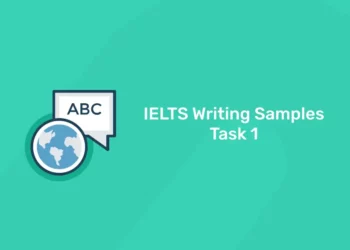Table of Contents
The Kerala PSC HSA (High School Assistant) Syllabus 2024 covers essential subjects, including HSA Malayalam, HSA English, HSA Social Science, HSA Natural Science, HSA Physical Science, and HSA Mathematics. As the exams approach, it’s crucial to understand the syllabus for effective preparation. This blog provides a comprehensive overview of each subject to help you focus your studies and improve your chances of success. Don’t delay further and begin your preparation with the Kerala PSC HSA Exam Pattern and Syllabus for 2024. Download Now!
Kerala PSC HSA Exam 2024 Overview
| KPSC High School Assistant 2024 | |
| Authority | Kerala Public Service Commission (PSC) |
| Name of the post | High School Assistant |
| Department | Education |
| Exam Type | Objective multiple choice |
| Exam mode | OMR/ Online |
| Total marks | 100 |
| Official website | keralapsc.gov.in |
Kerala PSC High School Assistant Exam Pattern 2024
1: The first recipient of the ‘Rajiv Gandhi Khel Ratna’ award?
The Kerala Public Service Commission HSA Exam has two stages: a written examination and an interview. The written test has two parts: Preliminary and Main. The Preliminary exam has objective-type questions covering the HSA syllabus topics. After passing the initial stage, the Main exam has descriptive-type questions. The interview aims to evaluate the candidate’s aptitude, knowledge, and teaching skills.
- The exam will be conducting either in Offline mode.
- The exam pattern is Objective type.
- There will a total of 100 questions.
- Each right answer will be awarded one mark.
- The duration of the examination will be 1 hour and 30 minutes.
| Parts | Name of Subject | Number of Marks |
| Part I | General Knowledge, Current Affairs, Renaissance in Kerala | 15 marks |
| Part II | Teaching Methodology | 5 marks |
| Part III | Subject | 80 marks |
| Total Marks | 100 Marks | |
| Duration: 1 Hour 30 Minutes | ||
Grab Latest study materials for HSA Exam! Register Here!!
Kerala PSC High School Assistant Syllabus 2024 – Expected
The Kerala Public Service Commission (KPSC) will soon release the syllabus and exam pattern for the HSA Exam 2024. The syllabus will cover essential topics related to the HSA subjects, while the exam pattern will outline the marking scheme, selection criteria, and other important details. Staying updated on the syllabus and exam pattern is crucial for effective preparation. Candidates should thoroughly study the prescribed syllabus and carefully review the exam pattern. The HSA syllabus includes major subjects such as English, Malayalam, Hindi, Urdu, Tamil, Kannada, Natural Science, Physical Science, Social Science, and Mathematics. Download the Kerala PSC HSA Syllabus 2024 for free now!
| Kerala PSC High School Assistant Expected Syllabus 2024 | |
| English | |
| Hindi | |
| Malayalam | |
| Tamil | |
| Kannada | |
| Sanscrit | |
| Arabic | |
| Urdu | |
| Mathematics | |
| Social Science | |
| Natural Science | |
| Physical Science | |
Kerala PSC HSA English Syllabus 2024 – Expected
PART A
- Module I : Renaissance and freedom movement
- Module II: General Knowledge and current affairs
- Module III: Methodology of teaching the subject
PART B
- Module I: Poetry
- Module II: Drama
- Module III: Prose and Fiction
- Module IV: Literary Criticism/ Terms
- Module V: Linguistics, Phonetics and History of Language
- Module VI: Modern English Usage
- Module VII: Basic Grammar
- Module VIII: Teaching of English
Kerala PSC HSA Hindi Syllabus 2024 – Expected
PART A
- Module I : Renaissance and freedom movement
- Module II: General Knowledge and current affairs
- Module III: Methodology of teaching the subject
PART B
- Module I: History of Hindi Literature
- Module II: Development of Hindi Literature in Renaissance Period
- Module III: Morden and Contemporary Literary Trends upto 2000
- Module IV: History of Hindi Language
- Module V: Grammer and Lingustics
- Module VI: Literary Thoughts- Eastern and Western
- Module VII: Functional Hindi and Journalism
- Module VIII: Methodology in Teaching Hindi
Kerala PSC HSA Malayalam Syllabus 2024 – Expected
PART A
- Module I : Renaissance and freedom movement
- Module II: General Knowledge and current affairs
- Module III: Methodology of teaching the subject
PART B
- Module I: Poetry
- Module II: Novel and Short stories
- Module III: Gadhyasahithyam
- Module IV: Review
- Module V: Bashashastram, Bashacharithram, Vyakaranam
- Module VI: Madhyamapadanam
- Module VII: Drishyakala
- Module VIII: Samskarapadanam
get higher rank in kerala psc hsa examination !
Kerala PSC HSA Kannada Syllabus 2024 – Expected
PART A
- Module I : Renaissance and freedom movement
- Module II: General Knowledge and current affairs
- Module III: Methodology of teaching the subject
PART B
- Module I: Grammar
- Module II: Ancient Literature & Epics
- Module III: Medieval Literature
- Module IV: Modern Literature
- Module V: Journalism & Mass Media (Tamil)
- Module VI: South Indian History & Culture
- Module VII: Folklore (Tamil)
- Module VIII: Literary Criticism
Kerala PSC HSA Kannada Syllabus 2024 – Expected
PART A
- Module I : Renaissance and freedom movement
- Module II: General Knowledge and current affairs
- Module III: Methodology of teaching the subject
PART B
- Module I: Jyotisa
- Module II: Nyaya
- Module III: Sahitya
- Module IV: Sahitya: Vrtta, Alankara and Poetics
- Module V: General (Sanskrit)
- Module VI: Vedanta
- Module VII: Vyakarana (Samjna and Sandhi)
- Module VIII: Vyakarana
Start preparing for your Kerala PSC exam! Download Entri App!
| Our Offerings | ||
| KTET Coaching | Kerala PSC LP UP Assistant Coaching | Kerala PSC Lecturer in Diet Coaching |
| Kerala PSC HSST Exam Preparation | Kerala PSC HSA Exam Preparation | EMRS Coaching |
| SET Coaching | ||












